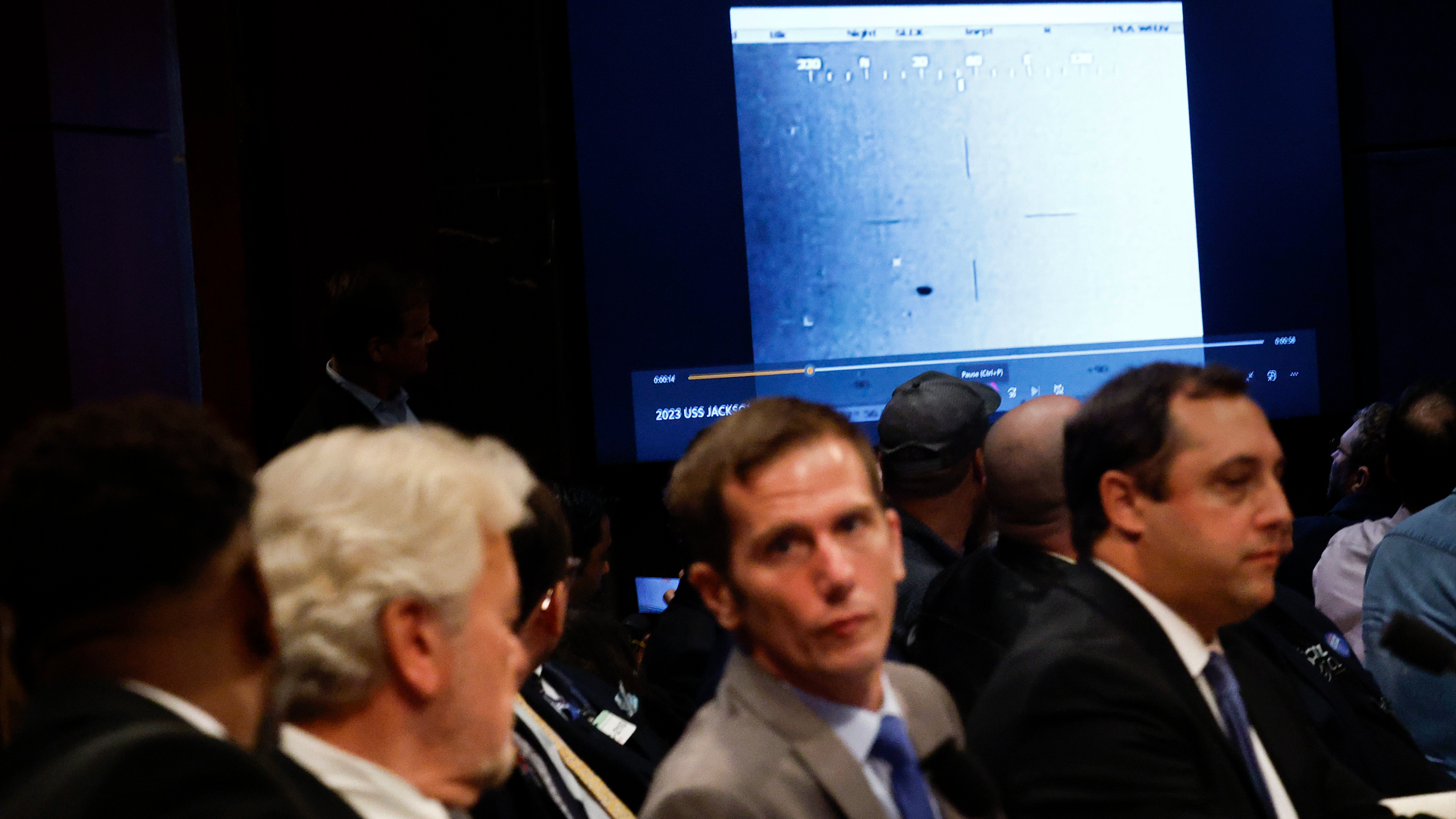Are UAP Witnesses Right to Criticize the Pentagon's UFO Office for Its Scientific Approach?

Published: 2025-09-13 10:00:00 | Category: politics corruption GNEWS Search
The U.S. government's approach to unidentified anomalous phenomena (UAP) has sparked a renewed debate surrounding transparency, public trust, and national security. With a recent congressional hearing led by Representative Anna Paulina Luna, there is a growing call for accountability and the establishment of whistleblower protections to encourage the sharing of vital information. This hearing highlighted the need for a shift away from secrecy and stigma toward a more open dialogue about UAP, which encompasses both aerial and underwater phenomena.
Last updated: 20 October 2023 (BST)
Key Takeaways
- The recent congressional hearing aimed to address the lack of transparency surrounding UAPs.
- Whistleblower protections are crucial for encouraging military and government personnel to share their experiences.
- Experts emphasise the need for scientific investigation and data collection on UAPs.
- Congress must allocate funding for UAP research to advance understanding in this area.
- Transparency and accountability are essential for restoring public trust in government dealings with UAPs.
The Historical Context of UAPs and Government Secrecy
Unidentified anomalous phenomena have long been a source of intrigue and speculation. Historically, the government has treated UAPs with a mix of secrecy and dismissal, leading to public scepticism and conspiracy theories. Representative Luna's statements during the hearing reflect a pivotal change in this narrative. By asserting the importance of transparency, she is advocating for a paradigm shift in how the government engages with this topic.
Secrecy and Stigma: Barriers to Disclosure
For decades, military personnel and officials have faced stigma for discussing UAP encounters, often leading to a culture of silence. This has prevented critical insights from emerging, as many individuals fear professional repercussions. The congressional hearing sought to dismantle these barriers by allowing witnesses to share their experiences openly and without fear of dismissal.
Why Transparency Matters
Transparency is key to restoring public trust, particularly regarding issues of national security. The U.S. government has an obligation to provide the public with accurate information about UAPs, especially given the potential implications for safety and security. By fostering an open environment where information can be shared, the government can engage citizens in a meaningful dialogue about these phenomena.
Encouraging Whistleblowers
One of the most significant challenges in addressing UAPs is encouraging whistleblowers to come forward. Experts argue that establishing robust protections for those who disclose information is crucial. Without these safeguards, individuals may remain reluctant to share their experiences, perpetuating the cycle of secrecy.
Expert Opinions on the Hearing
Following the hearing, several experts weighed in on its implications. Robert Powell, a member of the Scientific Coalition for UAP Studies, highlighted that the military reports presented were just a fraction of what is known. He stressed the necessity of obtaining comprehensive data, including videos and pilot testimonies, to advance the study of UAPs.
The Call for Scientific Inquiry
Experts like Alejandro Rojas lamented the lack of a scientific approach in the hearing discussions. Rojas emphasised that anecdotal evidence is insufficient; rigorous data collection and analysis are essential for understanding UAPs. The Pentagon's All-domain Anomaly Resolution Office (AARO) has been making strides in this area, but its efforts have often been overshadowed by political debates.
The Role of Congress in UAP Research
Congress plays a crucial role in shaping the future of UAP research. Funding for scientific studies and investigations into UAPs is paramount. Experts like Mark Rodeghier have called for legislation that ensures proper oversight and support for UAP research, arguing that the government must take these issues seriously.
Addressing the Scientific Community's Concerns
Michael Cifone, of the Society for UAP Studies, pointed out the complexities involved in studying UAPs. He noted that the phenomenon comprises various elements, including misidentified military projects and genuine national security threats. Understanding this complexity requires a systematic approach to data collection and analysis.
The Future of UAP Investigations
As congressional hearings on UAPs continue, the future of investigations hinges on collaboration between the government, scientific community, and the public. The key to progress lies in acknowledging the multifaceted nature of UAPs and prioritising transparency and accountability.
Potential Legislative Changes
To effect meaningful change, Congress must consider new legislation that prioritises UAP research funding and whistleblower protections. Such measures would encourage more individuals to come forward with information and enable scientists to conduct thorough investigations without fear of reprisal.
Conclusion: A Call for Action
As discussions surrounding UAPs evolve, the need for transparency and accountability remains critical. The recent congressional hearing is a step in the right direction, but more must be done to foster an environment where whistleblowers feel safe to share their experiences. The pursuit of knowledge about UAPs is not just a scientific endeavour; it is a matter of national security and public trust. The question remains: will the U.S. government take the necessary steps to ensure transparency and restore trust with the public?
#UAP #CongressionalHearing #Transparency
FAQs
What are unidentified anomalous phenomena (UAP)?
UAP refers to occurrences or objects that cannot be easily identified, including aerial and underwater phenomena. This term has largely replaced "UFO" to encompass a broader range of unexplained phenomena.
Why is transparency important regarding UAPs?
Transparency is crucial for restoring public trust in government dealings with UAPs. It allows citizens to receive accurate information and promotes accountability within government agencies tasked with investigating these phenomena.
How can whistleblower protections help in UAP investigations?
Whistleblower protections encourage individuals, particularly those within the military or government, to share their experiences and knowledge without fear of professional repercussions. This can lead to a richer understanding of UAPs.
What role does Congress play in UAP research?
Congress is responsible for allocating funding and shaping legislation that supports UAP research. Their involvement can ensure that scientific investigations are prioritised and that appropriate oversight is maintained.
What next steps can be taken to improve UAP investigations?
Future steps include enhancing funding for UAP research, establishing robust whistleblower protections, and ensuring scientific inquiry is at the forefront of investigations into these phenomena.



